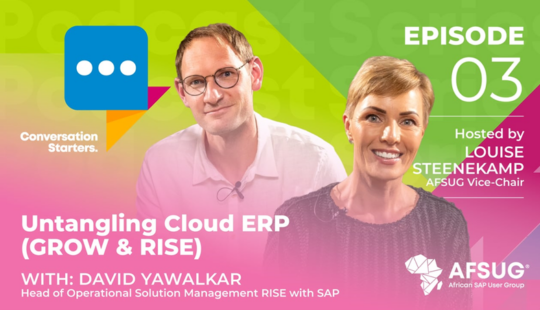Industries that companies work in define their core business and this is significant because it helps SAP ensure the ICT channel benefits from digital transformation.
This is according to Sven Denecken, senior vice president, chief marketing and solutions officer for industries and CX, SAP Germany.
Speaking on the sidelines of this year’s African SAP User Group and SAP biennial Saphila Conference, Denecken said SAP is active in 25 industries and uses the knowledge it has gathered from customers and partners in these industries, over the past 50 years, to enrich its channel ecosystem.
According to Denecken, this data is important because of digital transformation as well as industry convergence.
“One of the trends we are seeing is that the lines between industries are blurring… industry convergence is real,” said Denecken. “For example, an oil and gas company is not just about oil and gas. It can invest in charging ports for electric cars and then venture into retail, linking up the car charging service with stores and capitalising on higher margins.”
As Denecken explains, this oil and gas company has branched out into several industries and has a real opportunity to engage with new customers and refine the customer experience.
There are other examples, such as the push by financial service providers to provide telecommunications services and telcos that are tethering financial services to their offerings.
But Denecken points out that irrespective of industry, there is still a requirement for effective business process management, all permutations, and multiple functionalities.
He agrees that the argument could be made that this trend represents an opportunity, but also an obligation. “The headache comes from ‘how ready are the companies?’ and ‘how ready are the partners to learn?” said Denecken.
He is adamant that SAP has a major role to play in helping partners to capitalise on the opportunity and remove the headache linked to digital transformation.
He advocates a ‘T’ shaped model, which basically means a company “goes down deep and far” into an industry but does not lose sight of the top line or cubic line. “So, you learn from left and right. That (requires) huge change management…Digital transformation is not an end goal, it’s a journey.”
Introspection
COVID-19 forced SAP into a period of introspection as a multitude of sectors and industries were forced to adapt and fast-track digital transformation strategies.
This reinforced the company’s core mantra: “We have done it before, so we have the experience, expertise and resources to help you and ensure you can avoid the pitfalls’.
This is like gold to businesses operating in emerging markets like Africa.
“They can learn from international best practices and use this knowledge to leapfrog. SAP is constantly aware of its role to help businesses run better, to improve. We are hiring people that have different expectations and they represent companies that have different expectations.”
Data driven enterprise
Dr Oliver Gutzeit, vice president, experience technology, SAP Germany, said Africa most definitely has an opportunity to leverage digital transformation and use it to address socio-economic challenges, but cautioned that businesses must adopt a change in mindset and treat data as a product and asset.
This is the path towards emerging as a data-driven enterprise.
“We are not just preaching here and telling you (that) you must do it and treat it like a product; that’s easy to do on a Powerpoint, but we tell you that because we are doing it. We have found a way to treat the amount of pure data within our business capabilities framework.”
This is also used as a springboard to effectively manage data, treat it as a product and deliver on data democratisation and the principle of providing widespread access to those who need the data, Dr Gutzeit added.
“The first thing is to understand the need and the second to find the starting point of how to implement that next to the daily challenges, to the transformation challenges, to the technology challenges. This is a huge mindset change. It took SAP internally several years to really set that up in a way that we can now present it. We just want to tell you it’s worth the journey, it’s worth starting it today. You are already creating and collecting so much data in your systems, and it’s becoming more difficult and at a certain point it’s too late.”
Once the need has been identified, it then becomes a matter for IT to pitch to business.
According to Dr Gutzeit, SAP believes this is where the role of chief data and digital officer comes to the fore, because people in this position usually have a technical and business background, which equips them to handle the various dimensions and dynamics involved.
This article first appeared on ITWeb.



